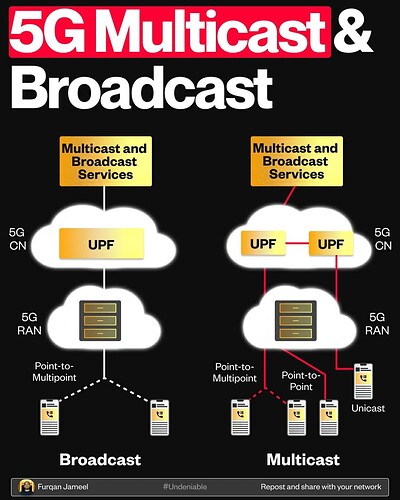There’s a smarter way.
Multicast and broadcast send one stream to many.
They send a single copy.
- That cuts redundancy.
- That boosts efficiency.
- That scales better.
They send the same data multiple times.
Here’s how it works.
- Data enters the UPF.
- The network transmits it to gNBs.
- Each gNB gets one copy. No extra packets.
- From there, the data moves via radio bearers.
Now, let’s break down the transmission.
-
Broadcast uses only point-to-multipoint.
- One signal. Many receivers. Simple.
-
Multicast, though?
- It’s more flexible. That means better efficiency.
This whole system runs on key protocols.
- SDAP maps QoS flows.
- PDCP compresses headers.
- RLC handles retransmissions.
- MAC ensures reliable delivery.
But it’s not perfect.
Some devices lack support.
Balancing efficiency and quality is tricky.
And let’s be real—security?
Still a concern.
That’s why 5G networks need to evolve.
Thanks for reading.
